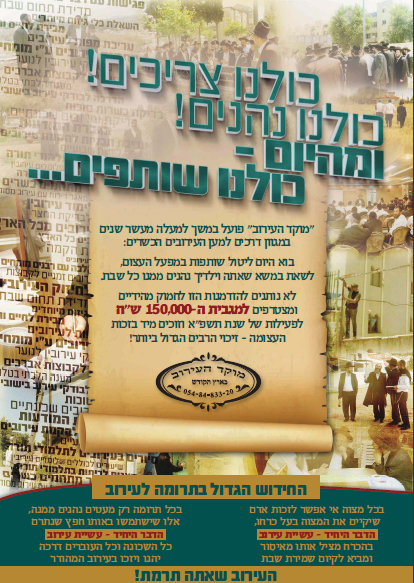For When Extraterrestrial Colonization Becomes a Reality…
Excerpt from Rabbi Avi Grossman:
כל שבים, טהור–חוץ מכלב המים, מפני שהוא בורח ליבשה, דברי רבי עקיבה. העושה כלים מן הגדל שבים, וחיבר ֿלהם מן הגדל בארץ–אפילו חוט, אפילו משיחה–דבר שהוא מקבל טומאה, טמא.
ויש במה שנברא ביום הראשון טומאה, בשני אין בו טומאה, בשלישי יש בו טומאה; ברביעי ובחמישי אין בהן טומאה–חוץ מכנף העוז, וביצת הנעמית המצופה. אמר רבי יוחנן בן נורי, מה שנה כנף העוז מכל הכנפיים. כל שנברא ביום השישי, טמא.
Anything within the sea [i.e. anything that originates in the sea, whether animal vegetable, or mineral,] is ritually pure [i.e., it is not susceptible to ritual contamination] except for pinnipeds (seals) because they retreat to to dry land [and are therefore considered land animals] – according to Rabbi Akiva [and the halacha follows him]. One who fashions implements from that which grew in the sea, and attaches something of terrestrial origin to them, even if just s string or a hem that is susceptible to contamination, then the implement is susceptible. Some of that which was created on the first day is susceptible to contamination.
Maimonides explains that many things, including water and the matter that makes up the earth, were created on the first day along with the light, which is explicitly mentioned. Water and other liquids are susceptible to contamination, as are vessels made of earthenware.
Of the second day, none is susceptible.
The firmament was the only thing created on the second day, and it would be impossible for it to be impure.

